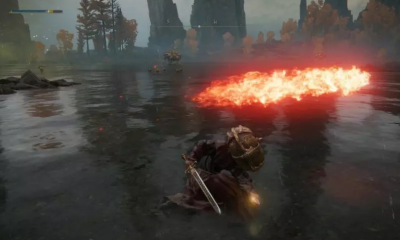Gaming
Poker Tips To Improve Your Game
While it may be possible to nudge the odds slightly in your favor when you’re playing against the house, poker is a totally different game. Instead, you’re up against your fellow gamblers. Some of them will be newbies, others will be cardsharps, and you probably fall somewhere in between.
Here we’re covering the best tips that anybody can put into practice to elevate their poker games. Our tips won’t make you a pro, by any means, but they will put you above the average poker player that hasn’t thought about the game as much as you have.
Remember that you can play poker and other Casino Games online too, so you don’t even need to leave your home to enjoy the fun.
Get A Bankroll
Maybe you’re playing friendly poker games between friends, in which case you may not worry too much about money. However, if you are bringing money to the table, you need a bankroll. Getting a bankroll will save your money and your sanity when things start to go bad.
Bankrolls are used to gamble without using any cards or cash that would be better saved for trivial things like bill payments and eating to survive. By having a separate pot of money to gamble with, you won’t be tempted to overspend and lose more of your cash. Everybody’s bankroll is different and depends on the stakes of the game you’re playing.
Once you have a bankroll, set limits on how much you’ll use in one sitting. For example, play poker until you make some money but, if you lose 20% or 25% of the pot in a sitting, then stop. Today clearly isn’t your day, so save your money and come back another time.
Fold More Often
To get better at playing poker, you need to play less poker. Just like many other casino games, you have a better chance at success when you limit your exposure to the game and the possibility of losing your hard-earned cash. Don’t give others the chance to swipe your money – only play when you’re confident you’ve already won.
Beginners are eager to play the game, or more accurately make some money, so they play too many hands. Your standards for which hands you carry forward should be higher – the pros don’t play hands often, they fold a lot, and they are giving themselves the best chances by doing so.
Set a minimum hand value that you’ll play at, discard everything beneath it. A reasonable minimum hand value should see you folding about 50% of your dealt hands, if not more. Don’t play any fancy mind games, only carry the hands that you’re personally confident in – it’s easier than faking confidence.
Watch The Table
While others nurse their hands, you’d do well to focus on the table instead. The cards on the table change the value of your hand throughout the game. So, if you focus on the flop cards, and then the fourth and fifth if you carry the hand forward, you can better anticipate windfalls and setbacks.
Of course, the importance of these cards depends on the game you’re playing and how powerful your hand is. Maybe your hand is great from the get-go, in which case you probably don’t care about the table cards much, though you should still pay attention to the combinations your opponents can make.
Identify The Sharps & The Suckers
Along with watching the table, you need to know your competitors. After a few rounds, it should become clear who is more experienced and who isn’t. Remember that saying – if you can’t see the sucker at the table, you’re it.
If you’re here, you’re not going to be the card sharp either, but that doesn’t mean you can’t compete. You just need to avoid being the fish, easily led and manipulated by the more experienced players and the game itself.
When players seem less confident, chase them by upping the ante and forcing them to either front their cards or fold them. Many fish will fold, after contributing to the pot, freely giving away their money. You need to have the confidence and the cards to back it up when pulling this off. You also need to avoid the card sharp sensing your weakness and doing the same to you!
Conclusion
Those are some basic tips that will make you a better poker player. After memorizing card and hand values, these tips address your attitude to the game, the money that you’re playing with, and the people that you’re up against. Those are things that the average person doesn’t consider when they step up to the table – they’re just focused on what cards they can get and whether they can profit from them.
By using these tips, you can build some fundamental skills that every poker player needs to know. With further training, you may even turn into a great player in time, though you’ve got a long way to go from here. If further training isn’t your plan, these tips will at least help you embarrass your friends at the next poker night.

















